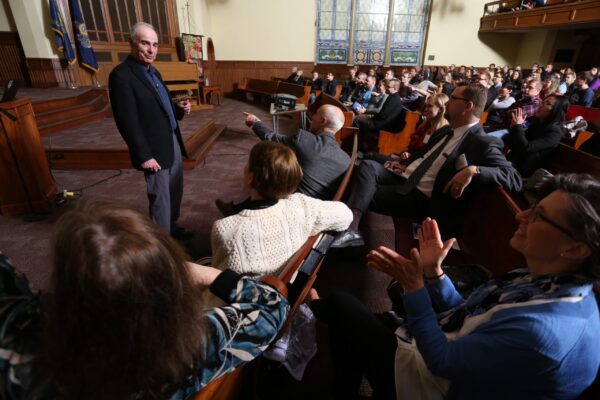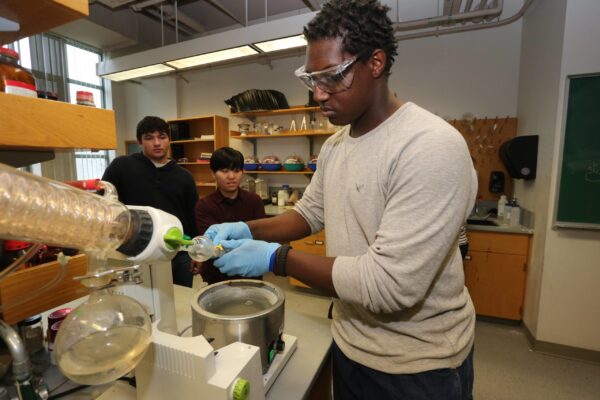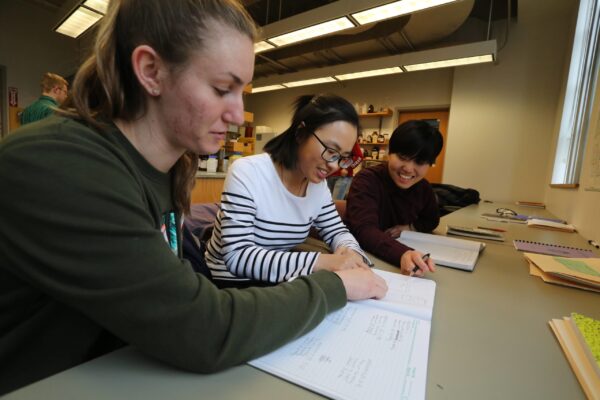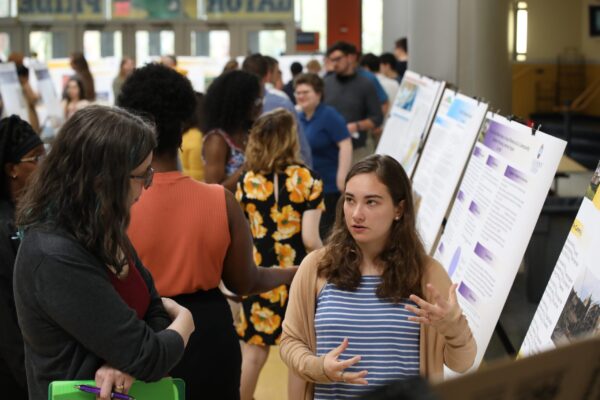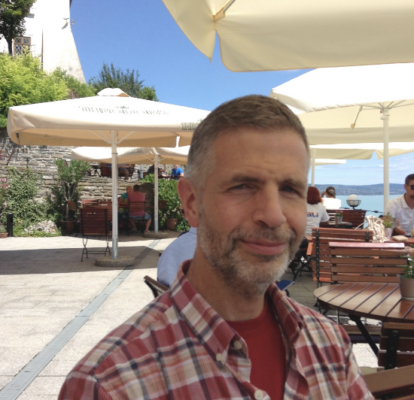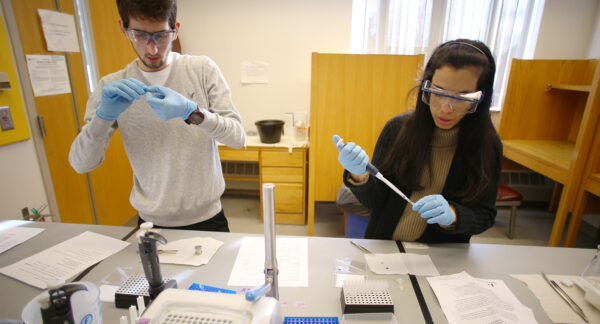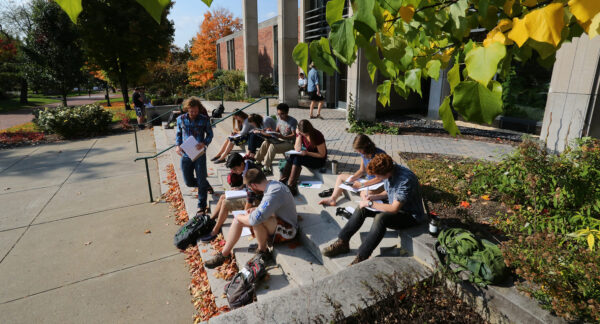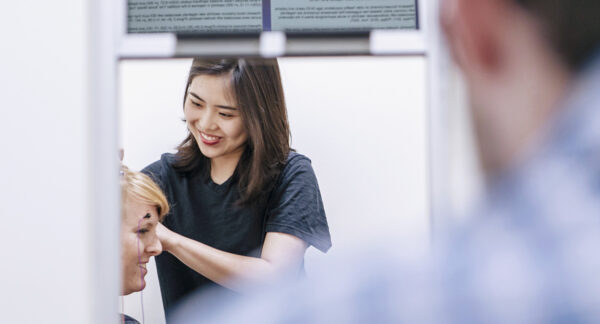
Chemistry
Mathematics and Natural Sciences
Why Major in Chemistry at Allegheny College
Our Chemistry program sets students on a path of mastery of fundamental concepts of matter and provides hands-on lab experience. As you experiment and investigate, you’ll gain the knowledge and skills to be successful in a wide range of careers and graduate programs where you can solve challenging global problems.
Unusual Combinations
Students often combine Chemistry with:
Division
- Mathematics and Natural Sciences
Program Type
- Major
- Minor
Number of Credits
64 for major26 for minorWhere Chemistry Alumni Work Today
Research Operations Associate
Okta
Carolyn Shetter ’14
Strategy Insights & Planning Associate Consultant
ZS
Timothy Grabnic ’13
Maintenance Manager/Reliability Engineer
AkzoNobel
Gregory Eyer ’12
Head of Demand COE, North America
Viatris
Eric Rohanna ’03
Vice President of Global Operations
ChemTreat
William Andrews ’01
High School Teacher
Pittsburgh Public Schools
Joe Hayes
Patent Law
Chuck Yeomans ’08
Buyer of Commodities
Covestro
Britteny Barclay (Hunt) ’17
Veterinarian
Katie Cornill
OB GYN Resident
Hannah Fischer
Forensic Chemist
Brittany Claassen
Associate Director, Supplier Quality Engineering Lead Cell Therapy Global Quality
Bristol Myers Squibb
Sarah Bottini
Associate Professor and Chair of Chemistry and Biochemistry
Berry College
Alice Harper Suroviec
Pharmacist at Mayo Clinic
Christina Rivera
Physicians Assistant
Blue Ridge Pediatric and Adolescent Medicine
Celeste Halcombe
In class, you are not just another number. Instead, professors truly want to see their students succeed and are willing to do whatever it takes to facilitate this success. Students can ask questions regarding any uncertainty in the material, but can also talk about how their day is going. Complementary to the intimate learning environment, the department also boasts a great appreciation for intellectual rigor.
Your Four-Year Journey
Year 1: Understanding
In cases where students present appropriate transfer credits or a high enough AP Chemistry score, foundation courses may be waived, enabling first-year students to begin in Organic Chemistry.
Featured Courses:
Year 2: New Approaches
Your second year courses will include Organic Chemistry I and the sophomore seminar, where you will learn to write and speak as a chemist. You’ll also begin to explore core courses in sub-disciplines like biochemistry and physical chemistry. Intermediate courses like Analytical Chemistry, Organic Chemistry II, and Multistep Synthesis are common options for spring semester sophomores. Participation in summer research with faculty is often a possibility.
Featured courses:
Year 3: Delving Deeper
In your third year, you will begin to take advanced seminar courses in subdisciplines you find interesting while completing outstanding core courses like Inorganic Chemistry or intermediate courses like Quantum Chemistry or Biochemical Metabolism. You will enroll in the Junior Seminar, which builds on the work accomplished in your sophomore seminar, in preparation for your Senior Comp. Laboratory work emphasizes the transition from guided experiments to independent research projects.
Year 4: The Comp
The focus of your senior year is the two-semester Senior Comp, which is carried out with close mentorship from a faculty advisor. Exemplary work can result in publication in chemical journals. You will also complete outstanding required courses for the major while applying to either graduate school, medical, dental, or veterinary school, or interviewing for a variety of positions in the chemical industry.
Featured Courses
Faculty and Staff
Email: smurphre@allegheny.edu
Phone: 814-332-5358
Assistant Professor
Email: lkueffer@allegheny.edu
Phone: 814-332-2351
Featured News
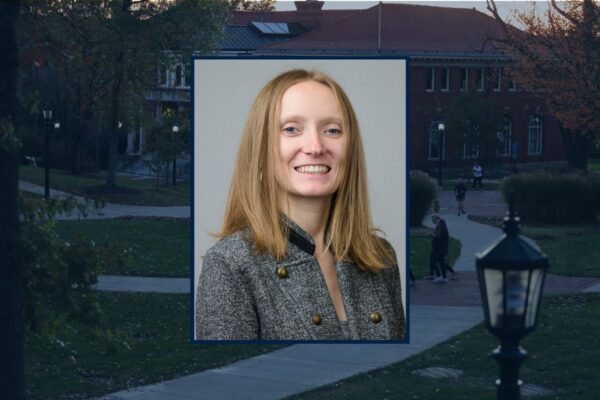
Allegheny Graduate Works At The Intersection of Chemistry & Machine Learning At The Pittsburgh Supercomputing Center
Dana Plumb ’19 dives into the intersection of computer science and chemistry at the Pittsburgh Supercomputing Center. As a machine learning research scientist, she designs and leads research on Neocortex, an artificial intelligence accelerator.


